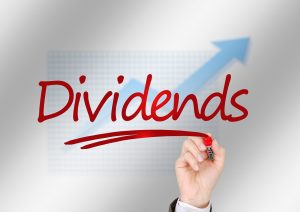What Is a Dividend and How Do They Work?
Dividends Meaning
Have you ever heard people talk about dividends and wondered what they are? It might sound like a fancy term, but with a little bit of understanding, anyone can comprehend it! Dividends are an essential part of the financial world, wherein many people can make money without investing any additional effort. This approach is so reliable that it’s become a defining strategy of many investors.
Whether you are a newbie in the world of investing or seeking a simplified explanation of dividends, that’s what we shall discuss in this blog post.
What is a Dividend?
A dividend refers to the distribution of profits made by a corporation or company amongst its shareholders or investors. In other words, dividends indicate the value that a business shares its profits with its shareholders as a time-based payment. As the distribution of earnings, dividends tend to be a powerful motivator for people looking to invest some of their money into stocks. It’s a way to benefit from the profits without directly participating in the active management of the business itself.
How Do Dividends Work?
The payment of dividends depends on the availability of profits and the company’s decision to distribute it. Companies usually declare dividends based on their financial performance. The payment happens through cash or additional shares of stocks. The former is more popular as it allows shareholders to receive immediate returns. When a company declares a dividend, an announcement is made, which consists of information about the dividend distribution, eligibility criteria, and the payment date. This ensures that all investors are well informed and can make the necessary arrangements to receive the payment promptly.
Types of Dividends
There are various types of dividends that a company can declare. These include:
- Cash dividends – The payment of actual money to the shareholders.
- Stock dividends – Providing additional shares to existing shareholders.
- Property dividends – Distributing non-monetary assets like gold, property, or any other asset to shareholders.
Who Can Receive Dividends?
Dividends are not exclusive to anyone who owns stocks or shares of a company. The shareholders who are registered at the cut-off date, also known as the dividend date, are eligible to receive the payment. The dividend date can vary from company to company, and they usually pay on a quarterly basis.
Conclusion
As you can see, dividends can be incredibly beneficial for investors. They offer an excellent way to make passive income based on the company’s profits without getting involved in its management. As long as you own some shares of a company, you could potentially receive dividends from time to time. Hopefully, this blog post has been helpful in providing a simple explanation of what dividends are and how they work. So, if you’re planning to invest in stocks, keep dividends in mind, and always remember to research the company before investing.


